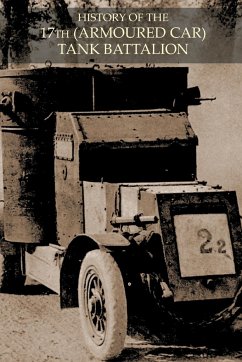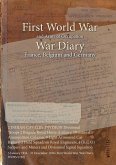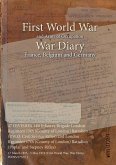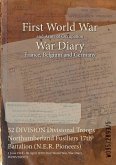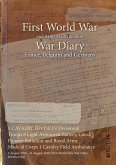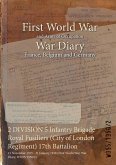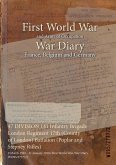The 17th Battalion arrived in France in April 1918. Its first operations were in support of the French Army in June. It returned to the British Army in August and was very successful at the Battle of Amiens. The Austin Armoured cars were towed in pairs by tanks across the battlefield. Once they reached better ground on the other side of the lines, they ranged freely. A German Corps headquarters 10 miles back was captured and German reserves, artillery and supply lines were shot up. The 17th was the first British unit to cross the Rhine in 1918. This is a very good Battalion history that is scarce in its original printing. Recognising after the battle of Cambrai that the slow MARK V tanks could break through the fortified German lines, but could not exploit the breakout, the new Whippet Tanks and the 17th (armoured car) Battalion underwent training to establish how to take advantage of this situation. In 1917 an order of Austin Armoured cars - originally destined for the Russian Army - became the 17th (Armoured car) Battalion. 16 of the Austins not sent following the revolution were used to equip the 17th (Armoured Car) Battalion of the Tank Corps. The Vickers machine guns were exchanged for the Hotchkiss M1914 machine gun, which was the standard machine gun of the British tank unit. During the fighting at Amiens as part of the 5th Australian Division, 16 cars were towed in pairs across the trenches and battlefield by tanks, and were then let loose behind the German lines, creating havoc around Proyart and Framerville. A German Corps Headquarters, which was located 10 miles behind the front line, was captured, and in honour of the Australian Division an Australian flag was nailed to the German generals' front door. Detailed plans of the Hindenburg line were captured and German reserves, artillery and supply lines were shot up, including a train. The greatest value of these cars was in the spreading of fear and rumour. German troops were reporting a new British tank that could travel at 30mph and spout fire in all directions. It was said that the 16 cars were 'worth more than a whole cavalry division'. At the time of the Battle of Amiens the armoured cars were painted sky blue and khaki, in the hope that they would not show up against the horizon.
Hinweis: Dieser Artikel kann nur an eine deutsche Lieferadresse ausgeliefert werden.
Hinweis: Dieser Artikel kann nur an eine deutsche Lieferadresse ausgeliefert werden.

